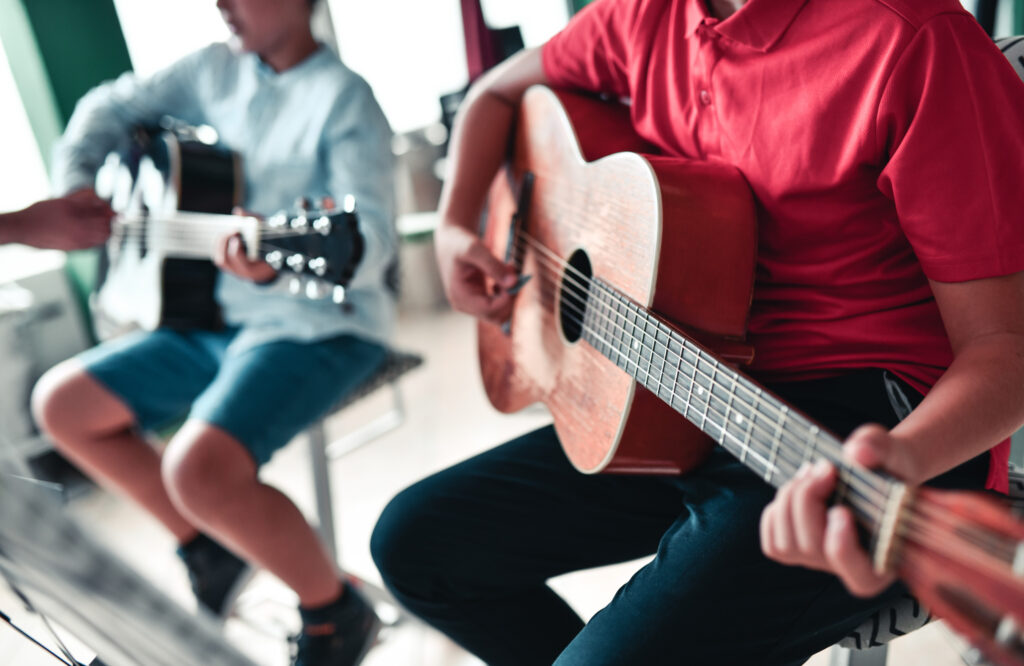High school math teacher Bobby Trunz always has a few guitars at his desk, and when students ask why, he invites them to join his beginner guitar class.
“I’m not trying to turn anyone into a musician. My goal is to teach them a fun hobby that they can do anywhere and that doesn’t cost much,” said Trunz. “After the first few classes and sore fingers, they learn that they can have fun and be very creative. Trunz teaches at Learn4Life, a network of 80+ free public high schools that offers a personalized education and flexible schedule. Most of its students need the one-on-one attention after struggling at their previous school or need flexibility so they can work or take care of family. “Schools everywhere face the challenge of keeping teens engaged,” he said. “Fun classes like music and the sense of accomplishment from learning a new skill are tremendous motivators.”

Chandler B., a sophomore at Learn4Life in Ventura, Calif., admits that math isn’t his favorite subject, so Trunz encouraged him to come to the beginner guitar lessons. “It was hard at first, but now it’s really fun and makes coming to school more interesting,” said Chandler. “I’ve learned how math and music have many of the same skills, like patience, problem solving and repetition. When I’m at home and bored, playing the guitar keeps my brain working. It’s so much more productive than scrolling on my phone.”
March is Music in Our Schools Month, emphasizing the profound impact music has on students throughout their lifetime. Trunz applauded Kris Bowers, co-director of the Oscar-winning documentary short, The Last Repair Shop, when he said in his acceptance speech, “Music isn’t just about creating incredible musicians, it’s about creating incredible humans.”
That’s exactly what Trunz is trying to do for his students.
While many states mandate that schools offer arts and music education in grades 1-12, enrollment in music is less than 50 percent and in California, only 14 percent of students are in music programs, according to the Arts Education Data Project. Schools with music programs have higher rates of attendance and graduation than those schools without.
Chandler practices guitar between six and 10 hours a week, and has written some songs and performed for his fellow classmates. “It was a bit nerve-wracking, but they seem to like my music.” His tips for other students, “It’s definitely hard at first, but hang in there and it gets easier. I keep my guitar in my eyesight, so I want to pick it up and play when I’m bored.” After graduation, Chandler plans to join the Air Force to become an airplane mechanic. He wants to continue his music education. “Writing and playing music will always be a part of my life.”
Source: Businesswire


